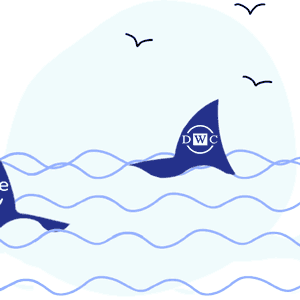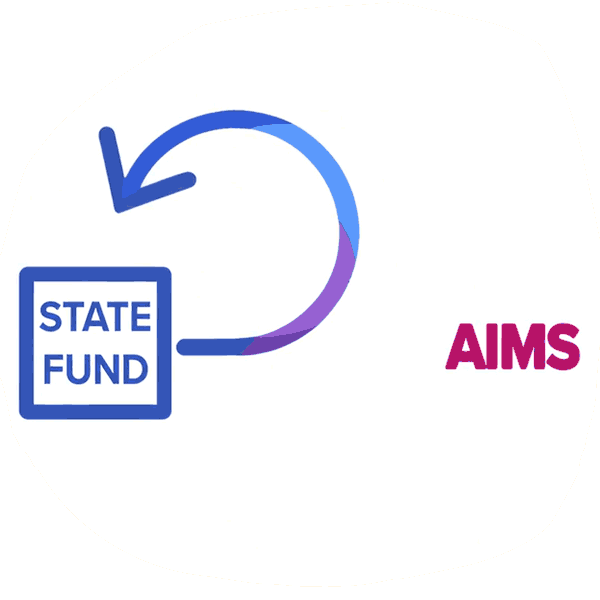Sedgwick: Private Equity Makes Obscene Profits

In California, injured workers stay injured longer and incur more administrative expenses to treat than in the rest of the nation.
That’s bad news for injured workers and employers, but it’s great news for private equity firms like the Carlyle Group, which own or have major investments in claims administrators and other workers’ comp-adjacent companies that can actually profit from systemic dysfunction.
Case in point: Carlyle has a majority stake in Third-Party Administrator (TPA) Sedgwick. No claims administrator gets more attention in this space than Sedgwick, and not only because it’s our system's largest single claims administrator. It’s also among the most blatantly non-compliant with state workers’ comp laws and regulations.
For years, this TPA has profited from employers’ workers’ comp dollars while enjoying the full advantages of the Division of Workers’ Compensation (DWC)’s apparent commitment to letting claims administrators run roughshod over the system.
And what are the results of Sedgwick’s well-documented, unpunished misbehavior? Obscene profitability.
When Carlyle first acquired its stake in Sedgwick in 2018, the TPA was valued at approximately $6.7 billion. Now, according to reports on Carlyle’s pending sale of a minority stake in Sedgwick to Altas Partners, Sedgwick is valued at approximately $13 billion.
That’s an over $6 billion difference—or an approximately 95% return on investment—for Carlyle in just six years.
And what is Atlas purchasing? A TPA that profits from the seven years it takes to close most California claims (compared to 3 years for the national median). A company that surely gets its slice of the excessive money wasted on administrative inefficiency in workers’ comp. And worst of all, a company that profits more when it contributes to systemic friction with its consistent non-compliance.
We can only speculate about intentions, but the numbers speak for themselves.
Workers’ Comp Friction: Fantastic for Private Equity
Workers’ comp researchers are increasingly pointing to the skyrocketing costs of treating injured workers—not because actual medical treatment is so expensive, but because of the administrative friction inherent to an effectively ungoverned system.
Network discounting alone, through organizations like Preferred Provider Organizations (PPOs), is a massive industry that creates profits by reducing providers’ reimbursements, making it more and more difficult to treat injured workers sustainably. Within this industry, contractual network discounts are the coin of the realm—traded, sold, and loaned to laundry lists of claims administrators, bill review entities, and others.
Private equity gets a slice of the profits from every corner of this tangled, convoluted system. Private equity firms, including Carlyle, own or have investments in:
- Bill review entities
- PPOs and other network discount contracting entities
- Medical Provider Networks (MPNs) and “entities providing physician network services”
- Utilization Review Organizations (UROs)
- Credit card companies, that enjoy fees for treatments paid with Virtual Credit Cards (VCCs)
- Pharmacy benefit managers (PBMs)
The more complicated, less efficient, and more obstacle-laden workers’ comp is, the more the entities above thrive. The less regulated the entities above are, the more ways there are to profit at the expense of providers, employers, and injured workers.
California workers’ comp is spiraling. The government agency tasked with holding it together, the DWC, has unmistakably signaled that it will not exercise its authority to protect injured workers, employers, or providers. This can only mean opportunities for entities with money to invest in everything that overcomplicates and hinders an injured worker’s journey.
For Carlyle to turn such massive profits by investing in companies like Sedgwick (and many other companies in the workers’ comp administration space, which we’ll explore in future articles), is a symptom of a system that rewards inefficiency, and in which corporate profits are healthier than injured workers.
In all likelihood, workers’ comp in California will get much worse before it gets better. Providers will continue to flee the system, and injured workers will continue to face needless obstacles, until a breaking point is reached.
We doubt this worries private equity firms, which will walk away from the ashes of workers’ comp with very, very full pockets.
daisyBill makes treating injured workers easier, faster, and less costly for providers. Request a free demonstration below.
REQUEST DEMO
DaisyBill provides content as an insightful service to its readers and clients. It does not offer legal advice and cannot guarantee the accuracy or suitability of its content for a particular purpose.






